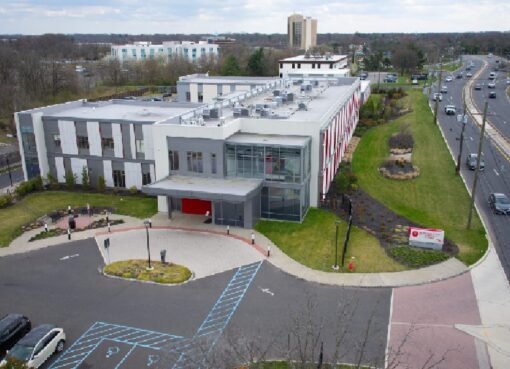How Much Does Alcohol Rehab Cost: Understanding the Value of Treatment

The cost of alcohol rehab is often one of the first questions people ask when seeking help. For many, this question is about more than just dollars and cents—it’s tied to deeper concerns about affordability, long-term success, and overall value.
But here’s the reality: how much does alcohol rehab cost can vary widely based on several factors. Understanding these costs can help you make informed decisions about your treatment options. More importantly, it will show you why rehab is an investment not just in getting better, but in staying better.
This article breaks down the key expenses related to alcohol rehab, explores the benefits of investing in treatment, and provides insight into why the costs are often worth every penny.
Why Does Alcohol Rehab Cost What It Does?
Quality, Not Quantity
The price of alcohol rehab reflects the quality of care. Reputable facilities work to tailor treatment programs to their patients, using resources like trained medical professionals, specialized therapists, and comprehensive recovery services. Facilities offering personalized care invest heavily in their staff and programs to ensure each individual gets the support they need.
Levels of Care
The type of rehab program greatly affects the cost as well. Generally, options range from outpatient treatment to inpatient/residential programs, and each comes with its own price point:
Outpatient Programs are usually less costly since patients live at home and attend scheduled sessions.
Intensive Outpatient Programs (IOPs) provide more frequent care but still allow flexibility in terms of living arrangements.
Residential or Inpatient Programs often include medical detox, round-the-clock staff, and a more inclusive treatment experience—hence the higher price tag.
Length of Treatment
The duration of your rehabilitation program is another major factor. Some individuals may need just 30 days, while others benefit from longer treatments lasting 60 or 90 days.
Specialized Therapies
Some treatment programs involve advanced or niche therapies. These could include trauma-focused care, holistic approaches like yoga or acupuncture, or experiential treatments such as art or equine therapy. While incredibly beneficial, these add-ons can influence overall costs.
When considering the cost of alcohol rehab, it’s important to weigh the financial investment against the potential for a healthier, more fulfilling life. Treatment programs vary widely in price, depending on factors such as location, duration, and the level of care provided. While some may find the costs daunting, many facilities offer flexible payment plans and accept insurance, making treatment more accessible. For those seeking more detailed information on treatment options and costs, you might want to check this out. Understanding the full scope of available resources can empower individuals to make informed decisions about their recovery journey, ultimately leading to a more sustainable and successful outcome.
Aftercare Programs
Successful recovery doesn’t end when you leave rehab. Aftercare, whether it’s counseling sessions, sober living homes, or support groups, often comes at an additional cost but plays a vital role in maintaining sobriety.
Typical Enrollment Costs for Alcohol Rehab
While it’s impossible to provide an exact cost due to variance between programs, a rough breakdown can help you gauge what to expect:
Outpatient Rehab can cost anywhere from $1,000 to $10,000, depending on duration and intensity.
Residential/Inpatient Rehab usually ranges between $5,000 to $50,000 for a 30-day program. Premium centers may charge more.
Detox Programs tend to cost between $1,500 and $7,000, depending on the services and duration.
Ongoing Aftercare Support may cost $500 to $1,000 per month for sober living homes, or $20-$50 per counseling session in group settings.
Benefits That Justify the Cost of Rehab
1. Comprehensive, Life-Saving Care
Alcohol rehab isn’t just about quitting drinking—it’s about addressing the root causes of addiction while fostering long-term behavioral changes. Facilities provide:
Medical Detox to safely rid your body of alcohol while minimizing withdrawal symptoms.
Therapeutic Support tailored to your specific needs, helping address mental health issues, traumas, and triggering behaviors.
With professional supervision and customized care plans, patients are much better equipped to fight and overcome their struggles than going at it alone.
2. Reduced Long-Term Costs
While rehab may seem expensive upfront, consider the alternative. The long-term costs of untreated addiction can far outweigh those of treatment. These can include:
Lost income due to job instability or unemployment.
Mounting healthcare expenses for addiction-related illnesses such as liver disease.
Potential legal issues stemming from alcohol-related incidents.
Investing in rehab can save thousands—or even tens of thousands—over the course of a lifetime.
3. Stronger, Healthier Relationships
Addiction has a devastating impact on personal relationships. Rehab often includes family therapy sessions that work to rebuild broken trust and open the channels for honest communication. This doesn’t just help you heal as an individual—it empowers your entire support network to move forward together.
4. Structure and Accountability
One of the keys to breaking free from alcohol dependency is developing a new, healthy routine. Rehab facilities help instill structure and accountability, preparing patients for life post-treatment.
5. Access to Expert Support
From licensed counselors to experienced addiction specialists, rehab places you in the hands of experts who are trained to guide you. These professionals also make use of scientifically validated tools and methods, ensuring you’re supported at every turn.
6. Peer Support and Community
Rehab programs foster connections with others facing similar challenges. Group therapy and shared experiences create an invaluable sense of collective support, reminding you that you’re never alone in your recovery.
Why Alcohol Rehab is Worth the Investment
Addiction isn’t just a personal struggle—it often impacts every aspect of life. From your health to your finances, your relationships to your career, untreated alcohol dependency can take an immeasurable toll.
Alcohol rehab offers a way out. The tools, resources, and skills gained during treatment are life-changing, laying the groundwork for healthier habits and long-term sobriety. And while the cost may seem intimidating, the benefits—which often include earning back that financial investment through restored quality of life—are thoroughly worth it.
Consider what rehab also represents—a commitment to reclaiming your future. For many, this promise alone makes the expense invaluable.
Breaking Financial Barriers to Rehab
Worried about affordability? There are steps you can take to make rehab more accessible:
Insurance Coverage: Many private insurance plans and public healthcare options cover portions of alcohol rehab. Checking your policy is a simple but important first step.
Flexible Payments: Several facilities offer installment plans, so you don’t need to pay the full cost upfront.
Scholarships or Grants: Various organizations provide financial aid for individuals seeking recovery.
Don’t let financial concerns keep you from getting the help you need.
Building a Healthier Future Starts Today
The cost of rehab may seem daunting, but ask yourself this important question—can you put a price on your health, happiness, and overall quality of life? For many on the path to recovery, the answer is clear.
Read more: https://husbandname.org/



